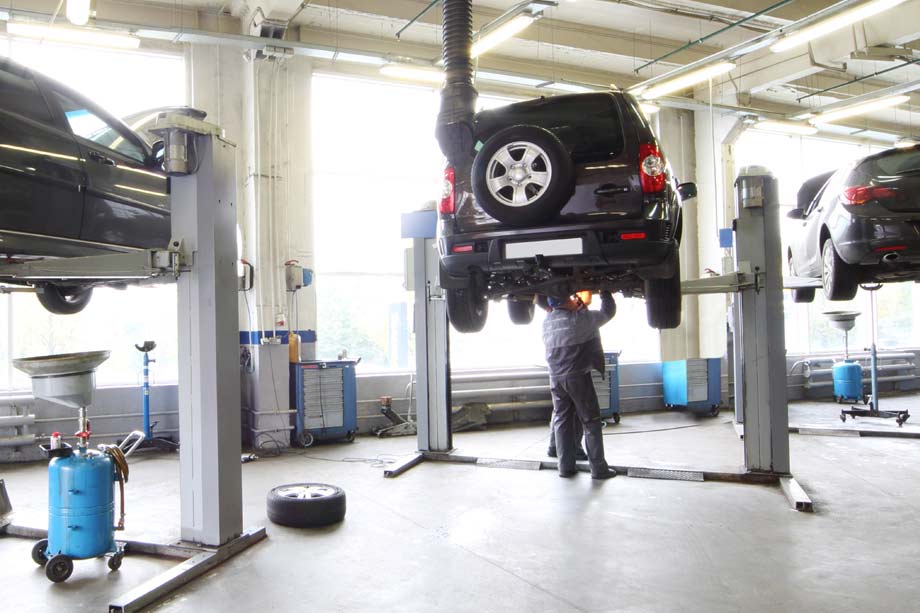All Categories
Featured
A car overheating can be a difficult circumstance, specifically if it happens unexpectedly. High engine temperatures can cause severe damages if not dealt with immediately. Recognizing what to do when your vehicle overheats and recognizing just how to stop it can save you from pricey fixings and ensure your safety when driving.
![]()
What to Do If Your Auto Gets too hot. Draw Over Securely. As quickly as you notice indications of overheating-- such as steam rising from the hood, a surging temperature level scale, or alerting lights-- draw over to a risk-free place. Shut off the engine right away to avoid more damages.
Turn Off the AC and Activate the Heater. Turn off the air conditioning to lower engine tons and switch on the heater if you're not able to pull over right away. This reroutes heat away from the engine and right into the cabin, which can help reduce the engine temperature level momentarily.
Open Up the Hood (with Care) Await the engine to cool down prior to opening the hood. Opening it ahead of time can subject you to scalding vapor or warm liquids. Once it's safe, inspect the engine for evident indicators of difficulty, such as leaking coolant or a broken radiator tube.
Check the Coolant Degrees. If you have coolant or water in your automobile, include it to the tank or radiator when the engine has actually cooled down. Prevent adding cool water to a hot radiator, as it can cause cracking.
![]()
Call for Assistance. Contact a tow truck or roadside assistance if you're not able to detect or solve the issue. Driving with an overheated engine can cause considerable damages, such as a blown head gasket or deformed engine components.
Just How to avoid Your Auto from Overheating. Examine Coolant Degrees Regularly. Ensure your automobile always has the appropriate quantity of coolant. Reduced coolant degrees are one of the most typical sources of overheating. On a regular basis examine the coolant tank and leading it off if needed.
Check Radiator and Hose Pipes. Seek fractures, leaks, or loosened connections in the radiator and hose pipes. Change any type of damaged parts promptly to avoid coolant leaks.
Maintain Your Cooling System. Flush and refill the air conditioning system as suggested in your vehicle's owner guidebook. Gradually, old coolant can lose its efficiency and stop working to protect the engine from overheating.
Screen the Thermostat and Water Pump. A defective thermostat or water pump can interrupt the cooling system's feature. Have actually these components examined throughout routine maintenance to catch concerns early.
Prevent Overwhelming Your Vehicle. Excessive weight puts extra stress on the engine and air conditioning system. Keep your load within the maker's advised restrictions.
Watch the Temperature Gauge. Focus on your temperature level scale, specifically throughout hot weather or when increasing steep inclines. If the gauge begins to climb, take safety measures such as lowering rate or turning off the AC.
Conclusion. If you know what actions to take, dealing with an overheated cars and truck doesn't have to be overwhelming. Performing quickly and securely can protect against additional damages to your engine. To lessen the threat of overheating, remain on top of regular upkeep, inspect your air conditioning system, and drive responsibly. With proper treatment, you can keep your engine running efficiently and prevent the aggravation of an overheated automobile.

What to Do If Your Auto Gets too hot. Draw Over Securely. As quickly as you notice indications of overheating-- such as steam rising from the hood, a surging temperature level scale, or alerting lights-- draw over to a risk-free place. Shut off the engine right away to avoid more damages.
Turn Off the AC and Activate the Heater. Turn off the air conditioning to lower engine tons and switch on the heater if you're not able to pull over right away. This reroutes heat away from the engine and right into the cabin, which can help reduce the engine temperature level momentarily.
Open Up the Hood (with Care) Await the engine to cool down prior to opening the hood. Opening it ahead of time can subject you to scalding vapor or warm liquids. Once it's safe, inspect the engine for evident indicators of difficulty, such as leaking coolant or a broken radiator tube.
Check the Coolant Degrees. If you have coolant or water in your automobile, include it to the tank or radiator when the engine has actually cooled down. Prevent adding cool water to a hot radiator, as it can cause cracking.

Call for Assistance. Contact a tow truck or roadside assistance if you're not able to detect or solve the issue. Driving with an overheated engine can cause considerable damages, such as a blown head gasket or deformed engine components.
Just How to avoid Your Auto from Overheating. Examine Coolant Degrees Regularly. Ensure your automobile always has the appropriate quantity of coolant. Reduced coolant degrees are one of the most typical sources of overheating. On a regular basis examine the coolant tank and leading it off if needed.
Check Radiator and Hose Pipes. Seek fractures, leaks, or loosened connections in the radiator and hose pipes. Change any type of damaged parts promptly to avoid coolant leaks.
Maintain Your Cooling System. Flush and refill the air conditioning system as suggested in your vehicle's owner guidebook. Gradually, old coolant can lose its efficiency and stop working to protect the engine from overheating.
Screen the Thermostat and Water Pump. A defective thermostat or water pump can interrupt the cooling system's feature. Have actually these components examined throughout routine maintenance to catch concerns early.
Prevent Overwhelming Your Vehicle. Excessive weight puts extra stress on the engine and air conditioning system. Keep your load within the maker's advised restrictions.
Watch the Temperature Gauge. Focus on your temperature level scale, specifically throughout hot weather or when increasing steep inclines. If the gauge begins to climb, take safety measures such as lowering rate or turning off the AC.
Conclusion. If you know what actions to take, dealing with an overheated cars and truck doesn't have to be overwhelming. Performing quickly and securely can protect against additional damages to your engine. To lessen the threat of overheating, remain on top of regular upkeep, inspect your air conditioning system, and drive responsibly. With proper treatment, you can keep your engine running efficiently and prevent the aggravation of an overheated automobile.
Latest Posts
Enhance Your Residential or Commercial Space with Expert Fencing
Published Dec 28, 24
1 min read
Discover the Top Advantages of Cataract Surgery
Published Dec 28, 24
1 min read
Protect Your Home with A-Abel Roofing
Published Dec 27, 24
1 min read